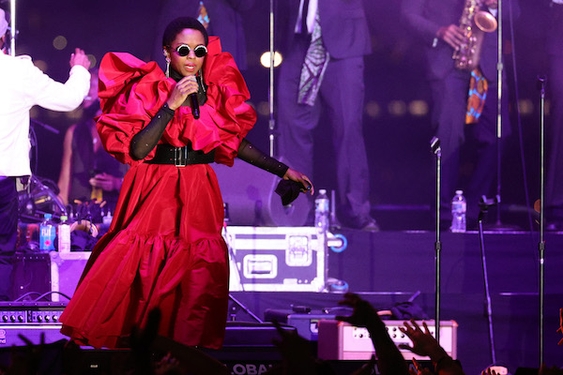Wainwright chose to start the show with a pair of slow piano ballads, a mistake that stole the energy from the rest of his set. Sitting at the keys, dressed in a white blazer adorned with a glittering bejeweled flower, he smirked at the crowd and explained that his next song was a "little country," and proceeded to croon "Get Along Little Doggy" for what seemed like hours.
The crowd perked up when he sang the first notes of "Hallelujah," a tune that pulled on the heart strings of everyone in the audience, and was a welcomed moment of recognition in a set filled with songs that were not on anyone’s must-hear list.
Wainwright’s personality was another important facet of the night; it seems that one’s reaction to his persona was an integral part of enjoying the show. His swaggeringly confident demeanor bled its way into the songs, and he sang closed-eyed and tight-lipped, after saying things like, "I got this new guitar because its pretty and they like me."
Don’t get me wrong, his set was a solid one, and his performance was by no means average. But his choice of songs as well as his holier-than-thou attitude between tunes created an atmosphere of tension between the artist and the audience.
Perhaps his set would have seemed a little bit more enjoyable if it hadn’t been sandwiched between the stellar performances of Ben Lee and Ben Folds, who both grabbed the crowd by the scruff of their necks and didn’t let go until their sets were past done. Folds was undoubtedly the highlight of the evening, powering through piano tunes that somehow had enough umph in them to have every person in the art-deco theater dancing. His inspired idea to have the crowd do the three-part harmonies for one of his songs really brought them in, endearing the artist to an audience that, up to that point, had been played for rather than played to.


